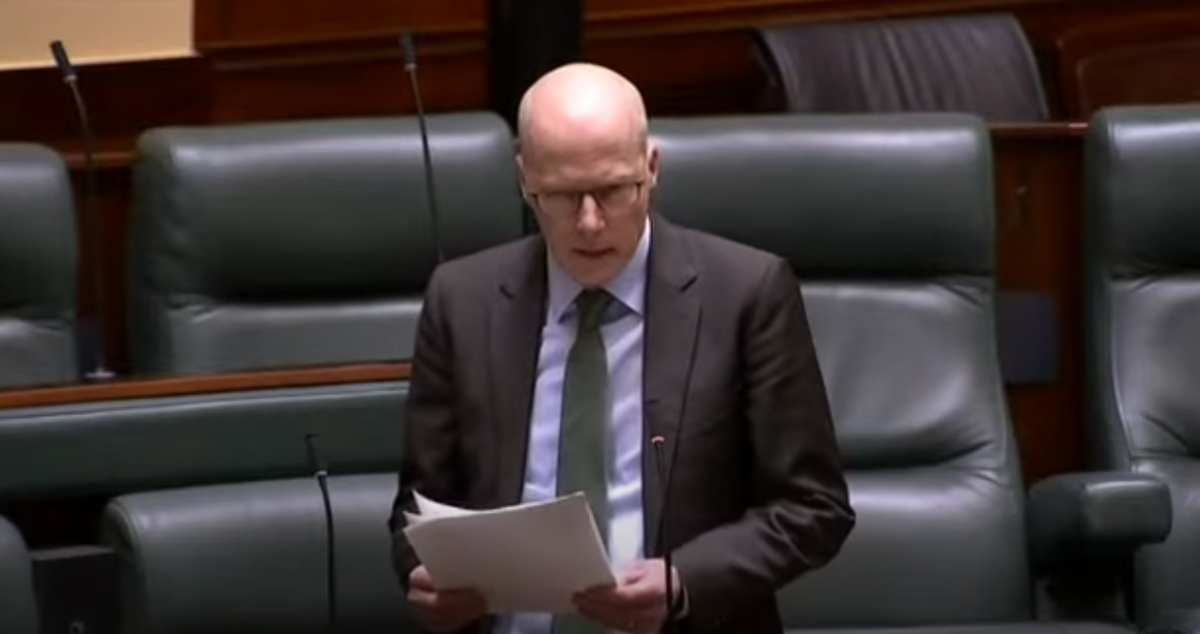
Member for Brunswick Dr Tim Read said it cost government agencies more than $21.3 million to administer the FOI Act in 2022/23, but it collected over $2 million in fees and access charges. Photo: Screenshot.
An inquiry has found Victoria’s 40-year-old Freedom of Information (FOI) regime is failing to meet the demands of today, leaving most requests for personal information in limbo for “many months, sometimes over a year”.
The Victorian Parliament’s Integrity and Oversight Committee recently tabled its report on its Inquiry into the Operation of the Freedom of Information Act 1982.
It claims the current first-generation FOI system “is not well adapted to the functioning of modern government in the digital age”, as it requires users to ‘pull’ information out of agencies through formal requests. This has led to Victoria receiving more FOI requests per year than any other state or territory.
Between 2022 and 2023, more than 48,000 formal requests were submitted to state government agencies in Victoria. More than two-thirds were from individuals seeking information about themselves.
Greens MP and Committee Chair Dr Tim Read said the government should replace its current regime with modern ‘right to information’ laws, similar to those in Queensland and New Zealand.
Throughout the inquiry his team was told that many state agencies took a defensive approach to FOI.
“Delays, high fees, complexity, the poor state of public records, unhelpful culture, and refusals to release information are all cited as reasons for our current system’s reputation for being impenetrable,” he said. “The lack of alternative pathways to obtain information is a major reason for the large number of requests that clog Victoria’s system.
“The submissions and witnesses in public hearings also explained that many state agencies take a defensive approach to FOI, relying heavily on legal exemptions to release as little information as possible, contrary to the spirit of the Victorian FOI law.
“At least one witness used the term ‘Freedom from Information’ to describe Victoria’s regime.”

The public would have a right to access ‘information’ as opposed to ‘documents’ under the proposed system. Photo: PeterJSeager.
Most of the 69 submissions to the inquiry largely agreed with the committee’s view for the regime to be replaced with a third-generation ‘push’ FOI system.
Under the recommended system, the public would have a right to access ‘information’ as opposed to ‘documents’ – bringing the regime into the digital age.
Agencies would be required to publish a range of prescribed information, including information of significant public interest and would be supported to publish additional information. Much of the burden of formal FOI requests would be replaced by information pushed out proactively or informally released to individuals upon request.
The other notable recommendation was for a new three-part test. If an agency decides to refuse access to information, they would be required to demonstrate:
- that they are protecting a legitimate interest
- that disclosure will cause substantial harm to that interest
- and that this harm is not outweighed by any public interest in disclosure (known as the ‘public interest override’).
Dr Read and his team also suggested the abolishment of application fees and limiting access charges to the costs of copying and delivering information. They also called for the Victorian public not to be charged for accessing their personal and health information.
Interspersed throughout the 101 recommendations made by the inquiry, is a sentiment that the regime “cannot be fixed through piecemeal reform”.
“The committee heard repeatedly from experts that the Victorian public sector needs a new culture of transparency favouring the proactive release of information,” said Dr Read.
“This will require political leadership and will be enhanced by adequate resourcing, plain-language drafting of legislation, a whole-of-government information framework and greater regulatory powers for the Office of the Victorian Information Commissioner (OVIC).”









